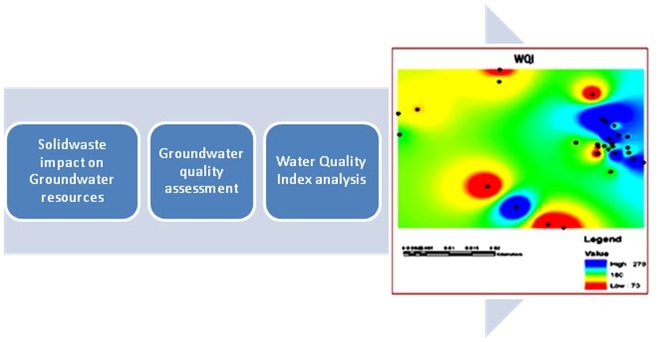
This study focuses on the impact of solid waste on groundwater quality in the region of Ramayanpatti, Tirunelveli. Tirunelveli city generates 100 tonnes of solid waste in a day. Solid waste has organic matter, inorganic matter, and moisture content which leaches dissolved organic matter, and heavy metals to the groundwater. Rainfall runoff carries all the dissolved contaminants from the solid waste and infiltrates into the groundwater. Groundwater quality is characterized at 30 locations around the dumping yard. Water Quality Index (WQI) is calculated using important characteristics such as pH, TDS, Calcium, Magnesium, Alkalinity, Sodium, Potassium, Chloride, Nitrate, and Sulphate by its relative weightage. The Spatial distribution of WQI is drawn. Groundwater Quality is very poor in the surrounding region of solid waste dump yard and also in the areas of agriculture irrigated areas. Groundwater in other areas shall be used for domestic purposes except drinking with proper disinfection.
Keywords: Solid waste, Groundwater Quality, Characterization, Water Quality Index, Groundwater use
Total file downloads: 77